FOCUS COUNTRIES
About the project
OGP is a government and civil society partnership to promote accountable, responsive and inclusive governance through the co-creation and implementation of national Open Government Action Plans. Parliamentarians have a critical role to play in broader OGP processes, which can be of great benefit by improving the quality of representation, strengthening trust, and safeguarding the independence of parliament.
OGP and Parliaments
In 2011, government leaders and civil society advocates came together to create the OGP, a unique partnership that combines these powerful forces to promote accountable, responsive and inclusive governance through the co-creation and implementation of national Open Government Action Plans.
Parliaments can be formidable champions of these principles and values and pivotal partners in advancing the open government agenda. Beyond strengthening openness of their respective institutions, parliamentarians have a critical role to play in broader OGP processes by: presenting, reviewing and adopting relevant legislation; building political traction across party lines and electoral cycles to ensure sustainability of efforts; holding the government accountable to its open government commitments; and setting the national agenda and lending political weight to OGP initiatives.
This can also be beneficial to parliamentarians in that it can help them: improve their representation function by investing in citizen engagement opportunities; strengthen trust by making public institutions more open and accessible; amplify their own voice through partnerships across government and with civil society; join a global network of openness champions; and safeguard the independence of parliament through greater transparency of its work and operations.
Parliaments can engage in OGP in two different ways:
- Parliaments can produce their own Open Parliament Plans through co-creation with civil society and these Open Parliament Plans can be incorporated as a chapter of their country’s OGP Action Plan; and/ or
- Parliaments can co-create one or more individual commitments that are directly included in the country’s OGP Action Plan.
Our goals
Empower civil society and parliamentary actors to co-create ambitious commitments.
Support the Parliaments directly involved in the initiative to advance their own and wider government openness reforms.
Share best- practices and knowledge to guide practitioners across countries/ regions.
Focus Countries
OPeN partners are currently focusing efforts on three countries that have been selected to advance Open Parliament initiaves under the World Bank-managed Open Government Partnership Multi-Donor Trust Fund. OPeN is currently supporting local stakeholders, capturing knowledge and developing good practices for wider dissemination and lesson sharing.
-
 Mexico
Mexico
-
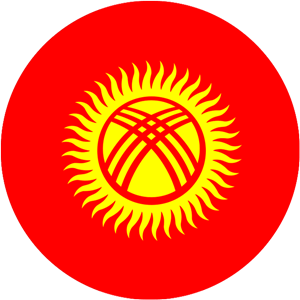 Kyrgyzstan
Kyrgyzstan
-
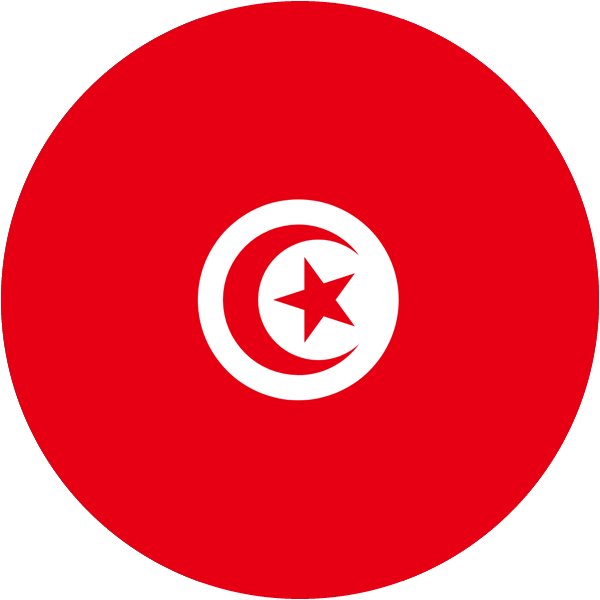 Tunisia
Tunisia
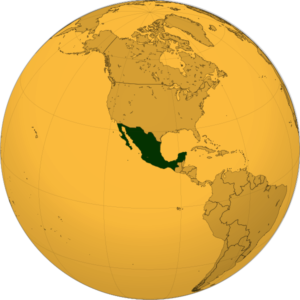 Mexico has undergone significant changes in its political landscape with important political transitions in the last decade, most recently with the election of a new political party with a majority government.
Mexico has undergone significant changes in its political landscape with important political transitions in the last decade, most recently with the election of a new political party with a majority government.
Mexico is a founding member of the OGP and has adopted four action plans. In 2017, allegations of governmental digital surveillance of civil society organizations (CSOs) complicated governmental relations with civil society, but cooperation resumed in 2019 and a fourth action plan was co-created and adopted, including a commitment to address illegal and disproportionate surveillance mechanisms.
While the legislative branch has not adopted open parliament commitments within the framework of an OGP Action Plan or an independent Open Parliament Plan, the Congress has adopted relevant good practices such as establishing a Senate Committee to Guarantee Access and Transparency of Information, establishing a consultative citizen council to ensure impartiality of the congressional tv channel, the publication of personnel remunerations and the implementation of a mobile interface to access the parliamentary agenda and follow sessions, among many others.
Furthermore, parliamentarians have expressed interest in advancing parliamentary openness through the signature by both chambers in 2014 of a Declaration establishing the Mexican Alliance for Open Parliament with a group of CSOs and the Federal Institute for Access to Information, and the formation of a Senate Working Group on Open Parliament in 2018. Moreover, the Senate has recently established an Observatory of Legislative Transparency and Open Parliament in collaboration with the Autonomous University of Mexico.
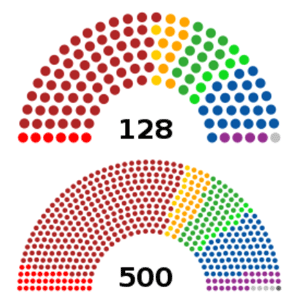
Government type: Federal presidential constitutional republic
Congress type: Bicameral – Senate (128 seats) and Chamber of deputies (500 seats)
Female legislators:
63 senators (49%)
241 deputies (48%)
Length of term:
Deputies: 3 years
Senators: 6 years
Last elections: July 1, 2018 (full renewal)
Voting system: Party-list combining proportional representation and popular vote using multi-member constituencies and single-seat constituencies.
The government party holds a majority of seats in Congress, with 50% of the Senate seats and 55% of deputies.
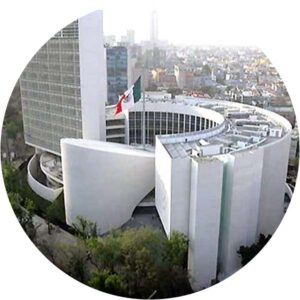 OGP member since: 2011
OGP member since: 2011
Open Government Action Plans: 4 (2011-2013, 2013-2015, 2016-2018, 2019-2021)
Number of OPPs: 0
Current status: Implementing 4th NAP
See OGP country page
See Faces of Open Gov
OPeN partners:
- Directorio Legislativo
- ParlAmericas
- National Democratic Institute
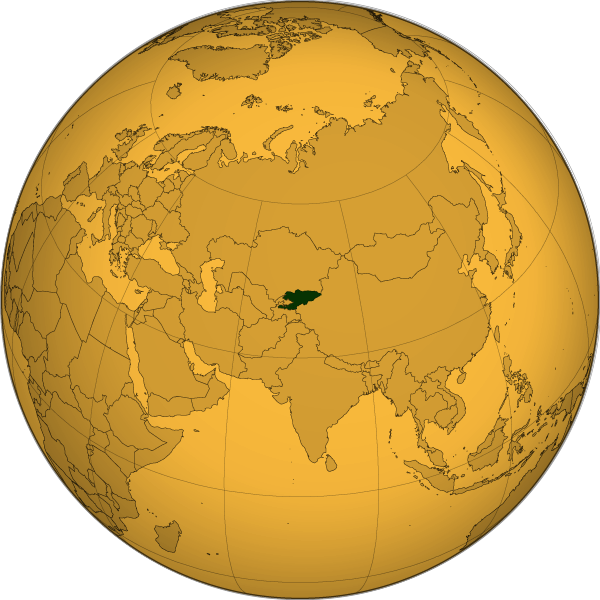
Instability following independence in 1991 led to the 2005 Tulip Revolution and further political upheaval in 2010. In response, the parliamentary constitution, adopted in 2010, established robust checks and balances, limiting the president to a single six-year term, setting the Kyrgyz Republic apart from all other Central Asian countries. Meanwhile, members of parliament are renewed every five years, with legislative elections due for October 2020.
A number of relevant regulations and government plans have been adopted in recent years to tackle the situation. The ratification of the UN Convention against Corruption in 2005, laws on Access to Information and acts of government, and the 2017 digital transformation program to improve public administration’s efficiency and quality are some examples of the numerous initiatives undertaken.
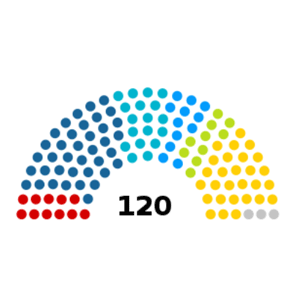
Government type: Unitary parliamentary constitutional republic
Congress type: Unicameral (120 seats)
Female legislators: 23
Length of term: 5 years
Last election: 4 October 2015 (full renewal)
Voting system: Party-list proportional representation in a single nationwide constituency.
The political party system is fragmented and 16 parties contested these elections. Although the ruling Social Democratic Party of Kyrgyzstan (SDPK) has undergone a split and did not stand for these parliamentary elections, some key SDPK MPs ran under different party structures, such as Birimdik, Mekenim Kyrgyzstan or Social-Democrats.
According to preliminary results, four political parties managed to overcome the 7 % threshold for entry into Parliament – “Birimdik” (24.53 %), “Mekenim Kyrgyzstan” (23.9 %), “Kyrgyzstan” (8.74 %), “Butun Kyrgyzstan” (7.09 %). The majority coalition holds a majority of seats. The “Birimdik” party is carrying out the agenda of the current president of the country, Sooronbai Jeenbekov.
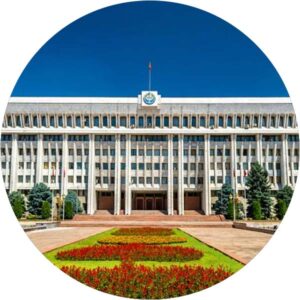 OGP member since: 2017
OGP member since: 2017
Open Government Action Plans: 1 (2018-2020)
Number of OPPs: 1 (2019-2020)
Current status: Implementing 1st NAP
See OGP country page
OPeN partners:
- OSCE Office for Democratic Institutions and Human Rights
- National Democratic Institute
- Westminster Foundation for Democracy
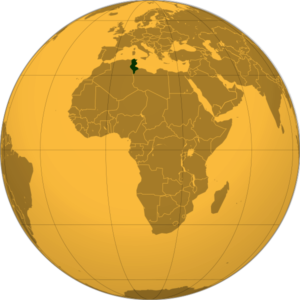 The years following the 2011 revolution have brought significant change to Tunisia. During 2011 to 2013 an exercise in compromise, inclusivity, and restraint helped navigate a complex political situation and led to the establishment of a coalition government following the 2014 elections.
The years following the 2011 revolution have brought significant change to Tunisia. During 2011 to 2013 an exercise in compromise, inclusivity, and restraint helped navigate a complex political situation and led to the establishment of a coalition government following the 2014 elections.
A new constitution was adopted in January 2014 and a number of important regulations have been passed since 2011, building a new legal framework with provisions to fight against corruption, a code of ethics in the public sector, and a new Law on the right to access to information, among others.
There has been strong pressure from civil society to open institutions and set a strategy for moving forward in a collaborative manner.
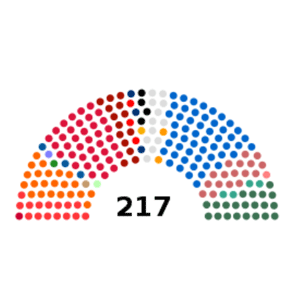
Government type: Unitary semi-presidential constitutional republic
Congress type: Unicameral (217 seats)
Female legislators: 68 (31%)
Length of term: 5 years
Last election: 6 October 2019 (full renewal)
Voting system: Party-list proportional representation using multi-member constituencies.
Over 20 political parties are represented in 3 coalitions, with a high degree of fragmentation and the ruling party holding 24% of seats.
Tunisia’s electoral law requires “vertical gender parity” and has the highest proportion of female legislators in the Arab world.
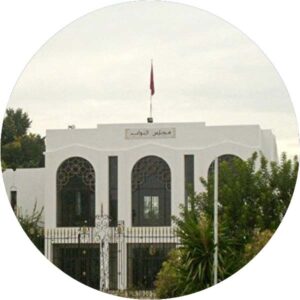 OGP member since: 2014
OGP member since: 2014
Open Government Action Plans: 3 (2014-2016, 2016-2018, 2018-2020)
Number of OPPs: 0
Current status: Implementing 3rd NAP
See OGP country page
See Faces of Open Gov
OPeN partners:
- National Democratic Institute
- Westminster Foundation for Democracy
